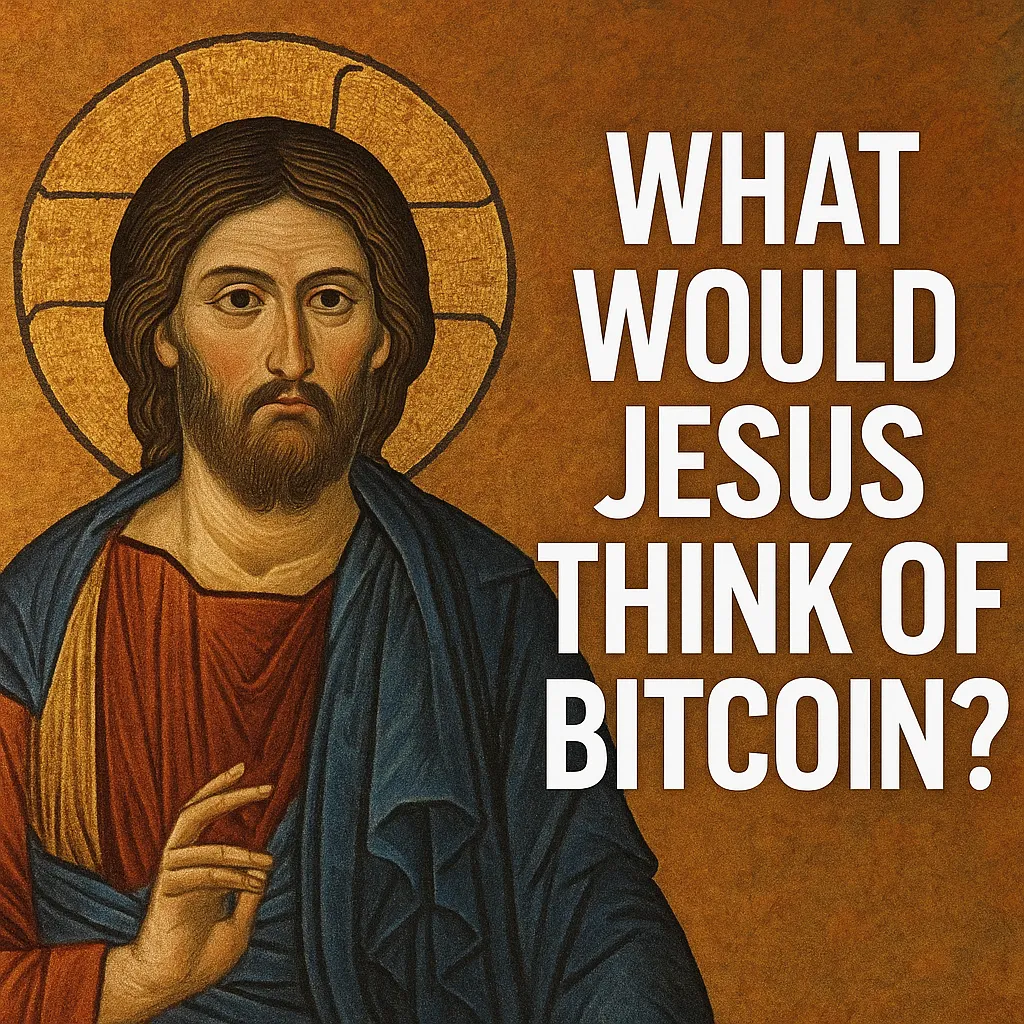
What Would Jesus Think of Bitcoin?
It’s a provocative question—one that invites reflection not just on the ethics of money but on the very nature of value, power, and human freedom. What would Jesus, a first-century Jewish teacher who famously overturned the tables of the money changers, say about Bitcoin?
To approach this question honestly, we must shed modern political baggage and theological tribalism and consider the core teachings of Jesus. His life and words consistently pointed toward truth, justice, compassion, and freedom from the bondage of materialism and corrupt authority. In this light, Bitcoin becomes a fascinating moral conversation—not just a financial or technological one.
Money Changers and Monetary Corruption
In the Gospel of Matthew, Jesus enters the temple and finds it filled with merchants and money changers. In a moment of righteous anger, he flips their tables and declares, “My house will be called a house of prayer, but you are making it a den of robbers.”
Why the outrage? The money changers weren’t just annoying—they were symbols of systemic exploitation. Temple taxes had to be paid in specific currency, and travelers were charged unfair exchange rates. It was a system of monetary gatekeeping built on coercion and insider privilege.
Fast forward to today: central banks and fiat currency systems echo these ancient practices. Inflation erodes purchasing power. Access to fair finance is gatekept by credit scores, bureaucracy, and intermediaries. The poor are taxed by money printing, while the wealthy benefit from asset inflation.
Bitcoin flips that system. It’s permissionless. It can’t be printed or manipulated by a select few. It separates money from state—just as Jesus sought to separate spiritual truth from imperial and religious authority.
Would Jesus flip the tables of today’s central bankers as he did the money changers? Quite possibly.
“Render to Caesar…”
One of Jesus’s most quoted lines about money comes from a trap laid by the Pharisees. “Is it lawful to pay taxes to Caesar?” they ask, trying to corner him. Jesus responds: “Show me the coin. Whose image is on it?” “Caesar’s,” they reply. Then he says, “Render to Caesar the things that are Caesar’s, and to God the things that are God’s.”
This isn’t financial advice. It’s a lesson in deeper allegiance. Jesus distinguishes between worldly systems of control (Caesar’s realm) and higher truth (God’s realm). You can pay your taxes without surrendering your soul.
Bitcoin operates on this same tension. It doesn’t reject Caesar—it renders unto him what is his. But it also offers an exit from Caesar’s unjust control of money. It’s a tool to operate honestly in a corrupt world while quietly opting into a more just one. It allows individuals to store value without relying on the empire’s currency. In a way, Bitcoin is like a digital wilderness where the soul can breathe again.
The Poor, the Oppressed, and Financial Freedom
Jesus’s ministry was radically inclusive. He healed lepers, dined with tax collectors, and lifted up the poor and marginalized. He warned against hoarding wealth and preached generosity. “Blessed are the poor,” he said. “Sell your possessions and give to the needy.”
Would Jesus care about Bitcoin’s price action? Not likely. But would he care about how it empowers the unbanked, gives economic agency to the oppressed, and protects people from the theft of inflation? Almost certainly.
In places like Nigeria, Argentina, and Venezuela, Bitcoin has already become a lifeline. It allows people to escape corrupt regimes, failing currencies, and broken banking systems. It’s not about becoming rich—it’s about surviving with dignity.
Jesus wasn’t anti-money. He was anti-exploitation. And Bitcoin, for all its speculative hype, offers an escape from the exploitative financial structures that dominate our world.
A Heart Check
Still, Jesus consistently warned against idolizing wealth. “You cannot serve both God and money.” Bitcoiners would do well to remember this. A fixation on gains, status, or winning converts can turn even good ideas into golden calves.
The true power of Bitcoin lies not in its dollar value but in its moral proposition: that no one should control your money, that inflation is theft, that financial sovereignty is a human right. These are ethical principles—ones that align with the teachings of a man who lived simply, gave freely, and stood against systems of control.
If Jesus walked among us today, he might not tweet about Bitcoin. He might not HODL. But he would see its potential to liberate, to restore justice, and to offer hope outside the empire.
Conclusion: A Tool, Not a Savior
Jesus didn’t come to fix our economic systems—he came to fix hearts. But tools matter. Money is not neutral. The systems we use shape the lives we live.
Bitcoin is not a savior, but it is a tool. And if used wisely—with compassion, humility, and a love for the poor—it just might be the most Christ-like form of money the world has ever seen.
If you're curious about Bitcoin's ethical roots and want to explore more, check out our free guide, Bitcoin Unlocked: A Guide to Financial Sovereignty.
Shout out to BullishBTC.com for helping people take the orange pill—one step at a time.



